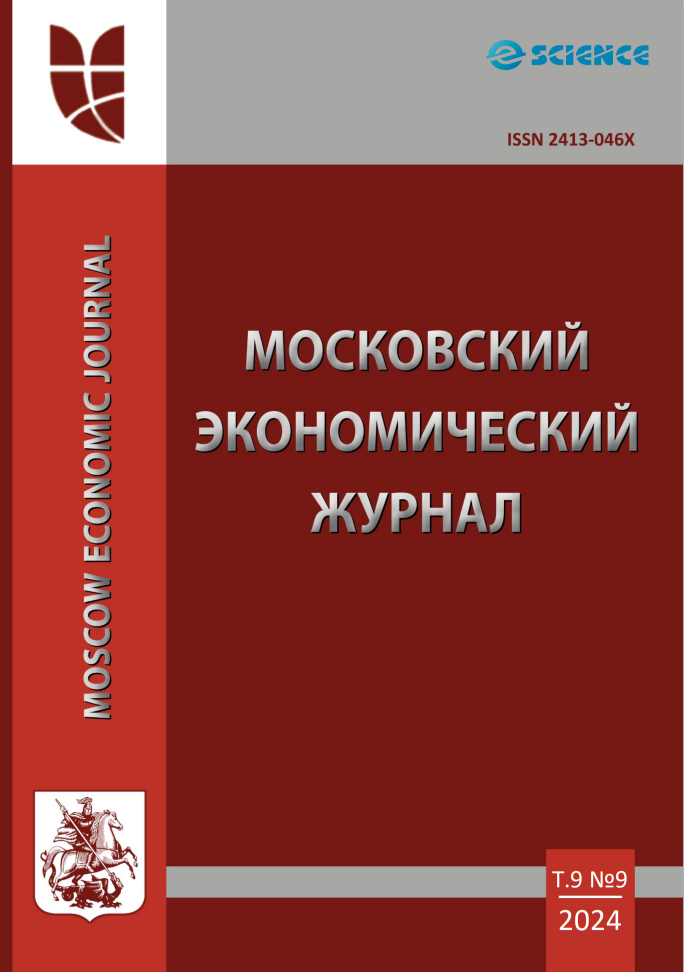UDC 330.88
The article analyzes the formation of the institutional system in the sphere of information technologies with a special focus on the enterprises providing services in this field. Modern research in the field of macroeconomic institutions demonstrates significant progress, but the attention to the features of the institutional system in the context of IT service companies remains clearly insufficient. This phenomenon calls for a more detailed study of not only formal, but also informal institutions regulating interaction within this sphere. Given the dynamic growth of the Russian IT market and the growing shortage of qualified specialists, the article pays special attention to the influence of corporate culture, in particular Agile methodology, as well as service management standards, such as ITIL, on the competitiveness of enterprises. These factors are increasingly recognized as critical to the success of companies. Studies show that the key elements that determine the success of IT services are adaptability to changing conditions, company reputation, the level of qualification of employees and systematic implementation of management standards. In the crisis situations that characterize today's market, it is important to pay attention to practices that contribute to overcoming difficulties in IT service management. This highlights the need to integrate both formal and informal institutions, which in turn leads to increased efficiency and competitiveness of organizations. This article elaborates on the differences between formal and informal rules that have a significant impact on the behavior of market participants and the dynamics of interactions between them. Thus, an integrated approach to the institutional system of IT service companies, taking into account both formal and informal aspects, becomes the basis for creating a sustainable competitive environment.
institutional system, information technologies, IT services, IT service companies, formal institutions, informal institutions
1. Auzan A.A. Institucional'naya ekonomika. Novaya institucional'naya ekonomicheskaya teoriya: ucheb. posobie / A.A. Auzan. — M.: Infra-M, 2006. — 333s.
2. Veblen T. Mesto nauki v sovremennoy civilizacii i drugie ocherki. - N'yu-York, 1961. 539 s.
3. Grinkevich, I. L. Korporativnaya kul'tura kak mehanizm povysheniya konkurentosposobnosti promyshlennyh predpriyatiy: avtoreferat dis. k. e. n.: 08.00.05. - Moskva, 2010. S. 9
4. Zimin K. Issledovanie, provedennoe itSMF Rossii i zhurnalom Information. Rezul'taty Vserossiyskogo issledovaniya IT Service Management 2019. Otkrytaya versiya. S. 10
5. Issledovanie sostoyaniya DevOps v Rossii 2023g // URL: https://express42.com/state-of-devops_pdf#download2023
6. Kleyner G.B. Evolyuciya institucional'nyh sistem / G.B. Kleyner CEMI RAN. - M.: Nauka, 2004. - 240 s. S 19
7. Kommons Dzh. Pravovye osnovy kapitalizma. N'yu-York: Makmillan, 1924. 432 s.
8. L'vov D.S. Institucional'naya ekonomika. - M .: INFRA-M, 2001. 311s.
9. Morozova T.G. Regional'naya ekonomika. - M.: YuNITI, 1998. 527s.
10. Nayt Dzh. Instituty i social'nye konflikty. - Kembridzh: Izdatel'stvo Kembridzhskogo universiteta, 1992. 252 s.
11. Nort D. Instituty, institucional'nye izmeneniya i funkcionirovanie ekonomiki. - M., 1997. S. 27.
12. Feraru G.S., Zernaev A.S., Usmanov D.I. Institucional'naya sreda i ee vliyanie na razvitie social'no-ekonomicheskoy sistemy regiona. - M.: EKC., 2014. 178 s.
13. Shastiko A.E. Novaya institucional'naya ekonomika. - M .: TEIS, 2010. S. 554.
14. 17th Annual State Of-Agile Report // digital.ai. URL: https://digital.ai/resource-center/analyst-reports/state-of-agile-report. s. 4











